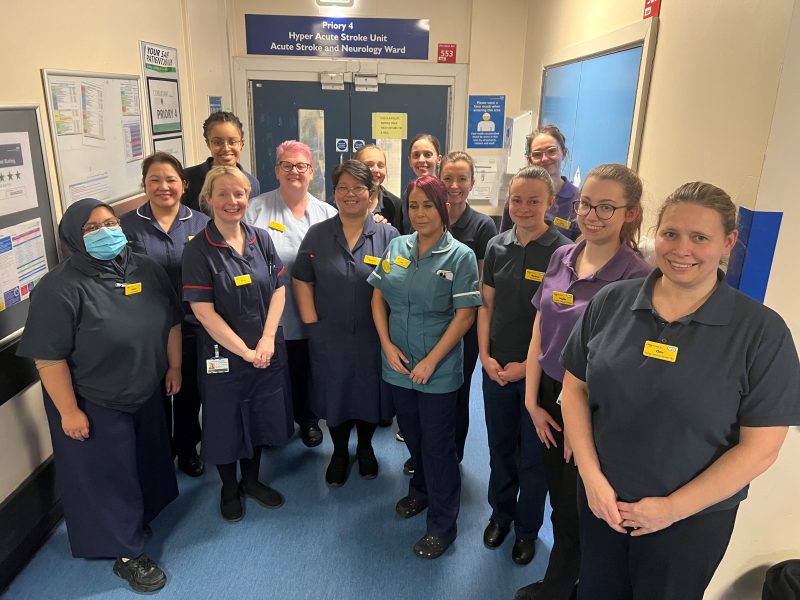Transforming care: The future of stroke services at Midland Met
June 1, 2023

The opening of the new Midland Metropolitan University Hospital in 2024 presents a unique opportunity to transform stroke care services. Thanks to a ground-breaking new project led by Clair Finnemore, Therapy Lead for Stroke Services, stroke patients are set to receive faster, more efficient care through the creation of an integrated community stroke service (ICSS).
Launching this month, the Integrated Community Stroke Service (ICSS) project will establish new domiciliary stroke rehabilitation services in line with national and regional stroke strategies, creating integrated community stroke specialist teams who will provide intensive, specialist therapy services in the comfort of patients’ homes. This home-first model of care will reduce hospital stays, freeing up beds and streamlining the patient journey.
A physiotherapist by trade, Clair is helping to transform stroke services by decoupling acute stroke and rehabilitation services. She explained: “The work we are doing cuts across all disciplines, including therapies, nursing, medicine, estates, social care, psychology, imaging, GPs and operational leads across PCCT and medicine.
“We decided to review the full stroke pathway to ensure those with acute needs can be assessed quickly and those requiring further rehabilitation can be supported in either inpatient rehabilitation beds or in their own homes.
“Launching the ICSS means we can provide a home-first model of care for all stroke patients who can return home safely with appropriate support and rehabilitation through intensive, specialist therapy services in a home setting. This approach will reduce the average length of stay in hospital, facilitating bed flow in Midland Met. Plus, it provides a seamless transition of care from acute to non-acute inpatient or domiciliary services with the same level of stroke multi-disciplinary team (MDT) expertise.
Speaking of the benefits of these service changes, Clair remarked: “Having this opportunity to make the stroke service operate in line with best practice will ultimately benefit patients and help us improve the patient experience from admission to rehabilitation.
“Overall, we’re making positive steps to change our services ahead of our move in 2024, and the team is taking advantage of every opportunity to seek feedback and patient input to help shape our services.”